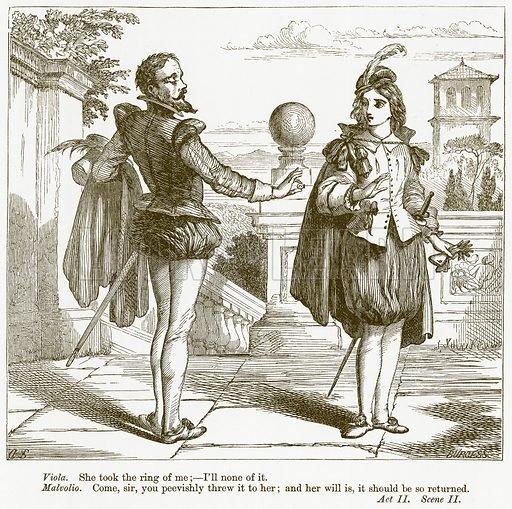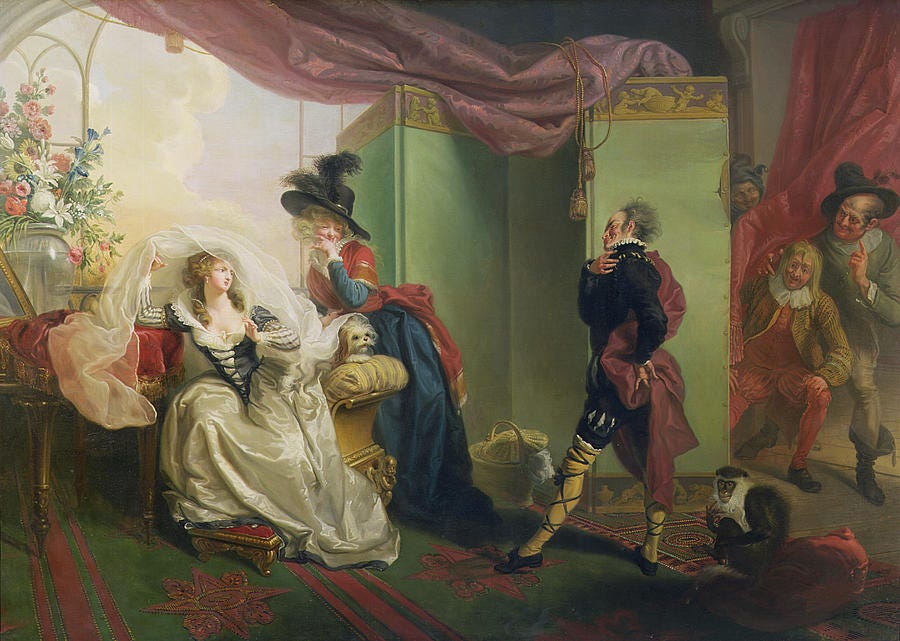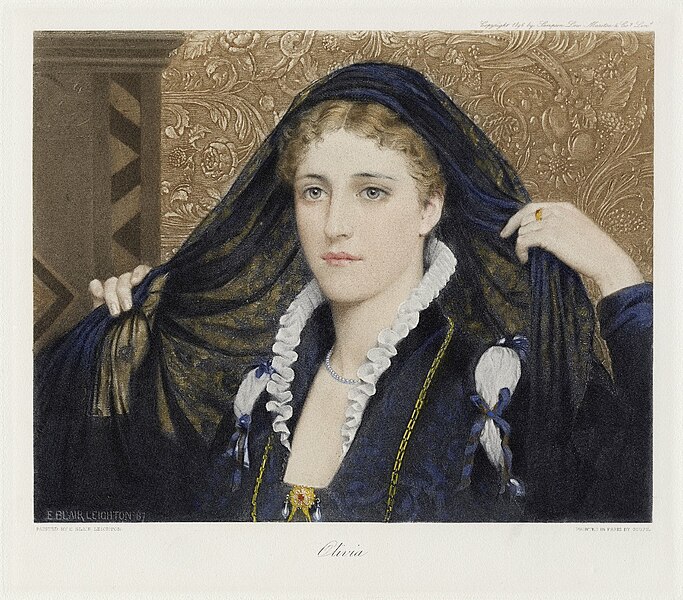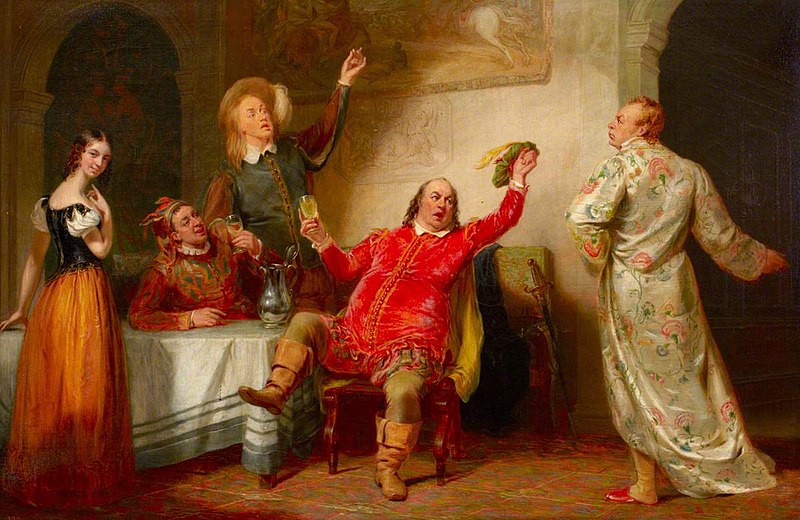Twelfth Night - William Shakespeare
58

"Twelfth Night" is one of William Shakespeare's delightful romantic comedies, known for its complex characters, witty dialogue, and exploration of themes like love, mistaken identity, and the topsy-turvy nature of life. Here's a brief analysis:
1) Mistaken Identity:
- The central plot device revolves around mistaken identity, with twins Viola and Sebastian being separated in a shipwreck. Viola disguises herself as a young man, Cesario, leading to a series of comedic misunderstandings and romantic entanglements.

2) Gender Roles and Disguise:
- The play challenges traditional gender roles through Viola's disguise as Cesario. Her interactions with Duke Orsino and Olivia explore the fluidity of gender and the complexities of romantic attraction.

3) Love and Infatuation:
- "Twelfth Night" explores different facets of love, from the unrequited love of Orsino for Olivia to Olivia's infatuation with Cesario. The play delves into the irrational and often humorous aspects of romantic attraction.

4) Foolishness and Wit:
- The character of Feste, the fool, adds a layer of wit and wisdom to the play. His wordplay, songs, and interactions with other characters contribute to the comedic atmosphere and provide insight into the themes of the play.

5) Social Class and Relationships:
- The play touches on issues of social class through the romantic relationships, with characters from different social strata finding themselves entangled in love. The cross-class relationships challenge societal norms.

6) Twins and Doubling:
- The presence of twins, Viola and Sebastian, creates a doubling effect in the play. This motif emphasizes the theme of duality and the coincidences that drive the plot.

7) Malvolio's Subplot:
- Malvolio's subplot involves a prank played on him by Sir Toby Belch, Maria, and others. This subplot adds an element of dark comedy to the play and explores themes of social order, ambition, and the consequences of pride.

8) Letter Writing and Deception:
- Letters and deception play a significant role in the plot. Characters often use letters to express their feelings or to trick others. This adds to the comedic misunderstandings and contributes to the play's overall structure.

9) Disruption and Resolution:
- The disruptions caused by mistaken identity, love triangles, and pranks are ultimately resolved in a harmonious and festive manner. The play concludes with marriages and a sense of order being restored.

10) Theatricality and Performance:
- "Twelfth Night" has a meta-theatrical quality with references to acting, role-playing, and the performance of love. This adds layers of complexity to the play and allows Shakespeare to comment on the nature of love and illusion.
"Twelfth Night" stands out as a brilliant example of Shakespearean comedy, blending humor, romance, and thought-provoking themes. Its exploration of love's capricious nature and the joyous celebration at the play's conclusion contribute to its enduring popularity.

Here is audiobook ''Twelfth Night'' for those who have no time to read the play;
Twelfth Night by William Shakespeare Audiobook;
References;
- "Ken Ludwig – Playwright: Shakespeare in Hollywood". www.kenludwig.com. Archived from the original on 27 October 2019. Retrieved 14 October 2019.
- Garden, Robin (2014). Shakespeare Reloaded. Cambridge University Press. p. 135. ISBN 978-1-107-67930-6.
- ^ "BFI Screenonline: Ill Met By Moonlight (1957)". www.screenonline.org.uk. Retrieved 18 January 2018.
- Levenson, Jill L.; Ormsby, Robert (2017). The Shakespearean World. Taylor & Francis. ISBN 978-1-317-69619-3.
- "'Fools and Mortals' finds Shakespeare's brother taking center stage". The Christian Science Monitor. 16 January 2018. Retrieved 14 April 2020.
- Leeds Barroll, Anna of Denmark, Queen of England: A Cultural Biography (Philadelphia: University of Pennsylvania Press, 2001), p. 83.
Thank you for reading!
You can complete great comment tasks at here. #twelfthnight #shakespeare #play #theatre #analysis #bookreview #audiobook
































![[ℕ𝕖𝕧𝕖𝕣] 𝕊𝕖𝕝𝕝 𝕐𝕠𝕦𝕣 𝔹𝕚𝕥𝕔𝕠𝕚𝕟 - 📈ALT season 40% vs No ALT season 60%📉](https://cdn.bulbapp.io/frontend/images/d2fb6be9-79f1-42ad-b3c2-b55996aa9941/1)












